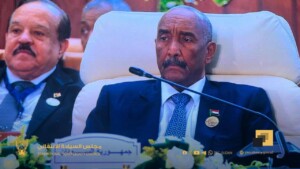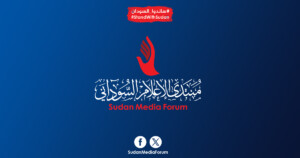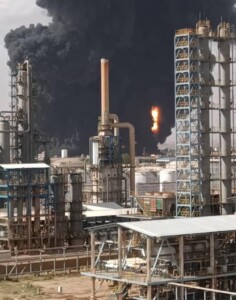Sudan PM briefs cabinet on peace talks, floods
Sudan’s Prime Minister Abdallah Hamdok briefed the Council of Ministers yesterday about the agreements he signed a week ago in Addis Ababa with Lt Gen Abdelaziz El Hilu, head of the Sudan People’s Liberation Movement-North faction (SPLM-N El Hilu), based in the Nuba Mountains in South Kordofan.
 Sudan's PN Hamdok with SPLM-N faction leader Abdelaziz El Hilu in Addis Ababa (Social Media)
Sudan's PN Hamdok with SPLM-N faction leader Abdelaziz El Hilu in Addis Ababa (Social Media)
Sudan’s Prime Minister Abdallah Hamdok briefed the Council of Ministers yesterday about the agreements he signed a week ago in Addis Ababa with Lt Gen Abdelaziz El Hilu, head of the Sudan People’s Liberation Movement-North faction (SPLM-N El Hilu), based in the Nuba Mountains in South Kordofan.
Hamdok said that the agreement opens an important door to achieve comprehensive peace by restoring dialogue with the SPLM-N El Hilu delegation in Juba.
The PM indicated that efforts will also continue to engage the mainstream Sudan Liberation Movement in Darfur, led by Abdelwahid El Nur from Paris.
Defence Minister Maj Gen Yasin Ibrahim explained that the merging and demobilising of the rebel fighters as agreed on in the security arrangements file signed in Juba on August 31, will begin with the formation of a permanent ceasefire committee, and the identification of focal points for the delivery of weapons, command and control mechanisms.
Hamdok confirmed in an interview with Sky News Arabia yesterday evening that Khartoum has met all the conditions required to have Sudan removed from the US State Sponsors of Terrorism list.
It is likely that Khartoum will reach the end of this “thorny file” soon, he said.
As for his meeting with El Hilu in Addis Ababa last week, Hamdok said that he signed two documents with the SPLM-N El Hilu, a joint Declaration of Principles and the joint statement about the negotiation methodology they agreed on.
Both sides will organise informal negotiation workshops to discuss “contentious issues such as secularism and the right to self-determination”, in order “to reach a common understanding that will facilitate the task of the formal negotiation teams”.
“Any discussion about peace that does not address the roots of the crisis is incorrect,” the PM emphasised.
Floods
Hamdok further expressed his confidence about the possibility of reaching a solution for the Grand Ethiopian Renaissance Dam file.
The deterioration of the infrastructure on the riverbanks in the country has exacerbated the flood crisis in Sudan.
He pointed to the words of the Sudanese Minister of irrigation that 99 per cent of the Nile flooding is caused by extremely heavy rainfall on the Ethiopian plateau. When the construction of the Ethiopian Renaissance Dam will be completed, it is expected that the flow of the Blue Nile will be regulated, and Sudan will no longer suffer that much from floods.
The PM stressed that “the transitional government is operating under very complicated internal and external conditions”.
Radio Dabanga’s editorial independence means that we can continue to provide factual updates about political developments to Sudanese and international actors, educate people about how to avoid outbreaks of infectious diseases, and provide a window to the world for those in all corners of Sudan. Support Radio Dabanga for as little as €2.50, the equivalent of a cup of coffee.












 and then
and then